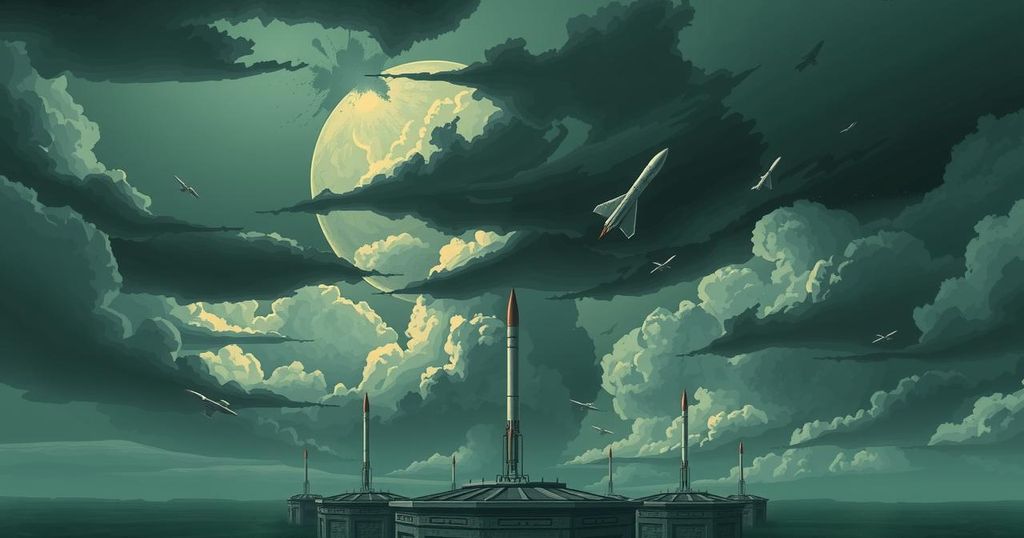Could North Koreans Working in Iran Have Been Killed or Wounded in the Weekend’s Attacks?

Recent U.S. airstrikes on Iran’s nuclear facilities have led to fears of potential casualties among North Koreans working in Iran. Experts warn that if any North Koreans were harmed, Kim Jong-un might retaliate against the U.S. Meanwhile, South Korea is implementing emergency measures due to rising tensions. The situation underscores the threat posed by North Korea, which continues to enhance its nuclear arsenal amid ongoing international scrutiny.
The recent American attacks on Iranian nuclear sites have sparked concern across the globe, particularly regarding the potential impact on North Korean nationals working in Iran. There is speculation that these individuals may have been casualties in the strikes carried out by B-2 bombers and Tomahawk missiles deployed from submarines. Bruce Bennett, an expert on North Korea’s military activities at the RAND Corporation, indicated that North Koreans are likely assisting Iran in developing its nuclear arsenal and missile technologies. Bennett stated, “North Koreans are still in Iran helping Iran with its nuclear weapon and missile programs.”
If North Koreans did suffer injuries or fatalities in the raids, it could escalate tensions between North Korea and the United States, as Kim Jong-un might retaliate somehow, Bennett suggested. While North Korea has officially condemned the bombings as a breach of the UN charter, it has remained tight-lipped about its collaboration with Iran on building shelters and protective barriers similar to Pyongyang’s own extensive nuclear facilities. Bennett elaborated that Kim might be reluctant to concede that North Korean experts are aiding Iran in evading sanctions associated with its nuclear ambitions due to fear of backlash.
With Kim Jong-un’s continuous expansion of nuclear capabilities, the North Korean leader likely perceives a growing threat to his own assets. Bennett argued, “He likely will feel that his facilities could be targeted next.” In a dramatic move, there is even concern that Kim could sell a nuclear weapon to Iran, which could enable Tehran to conduct a nuclear test, showcasing its defiance against the American efforts to interrupt its weapons program.
In response to mounting regional tensions, South Korean President Lee Jae-myung has delayed his attendance at a NATO meeting in The Hague while implementing an “emergency response system” to manage potential fallout from the bombings—tensions flaring in the Middle East could have repercussions for South Korea, as Yonhap News reported.
As North Korea approaches the 75th anniversary of the Korean War, Kim is presumably receiving intelligence reports evaluating damage from the GBU-57 bunker busters dropped on Iran’s fortified Fordow site. The key concern for him is whether these attacks jeopardize his own nuclear capabilities.
Evans Revere, a former senior American diplomat based in Seoul, emphasized that a full-scale U.S. assault is unlikely to obliterate all of North Korea’s nuclear arsenal, which is dispersed throughout the nation. He articulated, “North Korea has dozens of nuclear warheads that are stored and dispersed around the country, and a U.S. strike would be very unlikely to destroy all these weapons before some of them could be launched.”
Furthermore, Revere remarked that North Korea’s rapid acceleration in nuclear arsenal development over recent years is by design. “It is no accident that North Korea has been charging ahead with all deliberate speed… to expand its arsenal, harden its nuclear facilities and bases,” he noted. Clearly, Pyongyang has come to view its nuclear stockpile as essential to its very survival.
The attacks on Iranian nuclear sites raise significant concerns regarding potential North Korean casualties, complicating the already tense geopolitical dynamics. Experts reiterate North Korea’s ongoing support for Iran’s nuclear efforts while simultaneously assessing the repercussions for its own nuclear assets. As regional tensions escalate, concerns now extend beyond the Middle East to affect South Korea, highlighting the interconnected risks posed by North Korea’s expanding nuclear capabilities.
Original Source: www.nysun.com







